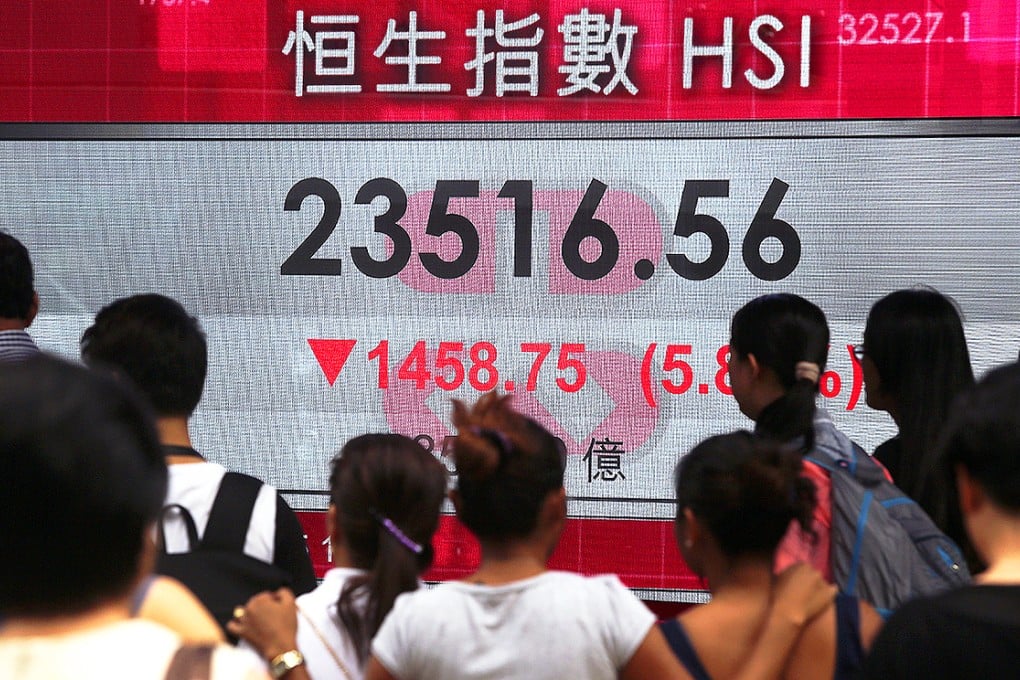Day when the only way was down: Panic selling in mainland Chinese stocks spreads to Hong Kong
As half of mainland listed firms halt trading, contagion spreads to the Hong Kong share market

Hong Kong stocks saw one of their worst days in history yesterday, with the key index losing more than 2,000 points at one point, as the market reeled from panic sell-offs on the mainland and uncertainties over Greece.
As investors ignored a battery of support measures from Beijing to revive market sentiment, mainland stocks continued to plunge. The benchmark Shanghai Composite Index lost another 5.9 per cent, or 219.93 points, to close at 3,507.19, the lowest in nearly four months.
[Investors should] stay calm [and] beware of risks of the market
The Shenzhen Component Index, dominated by smaller companies, lost 2.94 per cent, or 334.71 points, to finish at a four-month low of 11,040.89.
Contagion hit Hong Kong - half of whose stocks are listed mainland companies - as foreign investors fled Chinese shares amid fears of a meltdown after a nearly 30 per cent plunge in less than a month.
The Hang Seng Index lost 5.84 per cent, or 1,458.75 points, to finish at 23,516.56 yesterday. That was the biggest single-day percentage drop since November 6, 2008, when city stocks were hit by the global financial crisis.
Yesterday the index fell up to 8.2 per cent during trading, its biggest intraday loss ever, shedding 2,138 points.